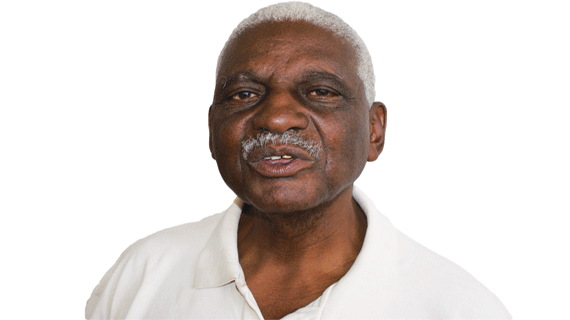
IN THE last issue (May 23 2014) we pointed out that the Western justice system claims that “justice delayed is justice denied,” which is to say that a case must be dealt with expeditiously when it is still fresh and the evidence is still “hot”.
We agree fully with the idea that justice must be seen to be done, that is, that all people generally must be satisfied that proper justice has been meted on the offender or that the innocent has been justly acquitted. We need not point out to any cases in the Western system where in fact injustice has been seen to be done.
There was very little chance of that happening in the Ndebele system of justice. Judgment was handed down there and then in the presence of everyone who participated in the public trial . That is what we meant when we said that the judgment was short, quick and sharp.
Various forms of sentences are meted on offenders to suit the offence. Furthermore, these sentences are not just chance pronouncements that are given without due consideration.
They are well thought out and generally are a corporate decision by an experienced council of the chief. The most common sentence is compensation, that is, the offender paying back to the offended.
For instance, your chickens strayed into your neighbour’s homestead and started picking the sorghum grains that were drying up. Your neighbour angrily picked up a stick and broke the legs of two of them.
Your neighbour must pay back the hens; simple. You stole your neighbour’s goat and you slaughtered it for your family. Ungangile. Ubusela bubi phakathi kwesigaba.
Double sentence. Lala phansi selandini and repay the goat. The lala phansi sentence was corrective, not just to inflict pain, but to instill sense into the offender and to be a lesson to the onlookers because it was meted out in public.
- Chamisa under fire over US$120K donation
- Mavhunga puts DeMbare into Chibuku quarterfinals
- Pension funds bet on Cabora Bassa oilfields
- Councils defy govt fire tender directive
Keep Reading
Without theorising too much let us consider the following case that will help us understand the Ndebele justice system.
- Ncube v Mthombeni
Ncube and Mthombeni were not friendly neighbours. Mthombeni dug a well in his garden. It was a good well which gave a lot of clear water. Ncube did not have a well. On two occasions Ncube’s wife and daughter were seen fetching water from Mthombeni’s well.
On the third occasion Mthombeni actually caught them and chased them away without any water.
The next morning umthombo wafunyanwa usugqitshiwe (the well had been filled in with soil). Mthombeni reported this to the chief and gave details about the suspect. The chief convened a court in three day’s time.
Induna: Siyabonana bantwana benkosi. UMthombeni wafika kimi ngohlupho olwamehlelayo. Mthombeni, landisela amahlabezulu ngohlupho lwako.
Mthombeni: Abantwana bakaNcube bebesikha emthonjeni wami osesivandeni sami bengacelanga imvumo. Kuze kwaba kabili bebonwa besikha. Okwesithathu ngabakhanda.
Mina ngabaxotsha bahamba bengasakhanga amanzi. Ngakusasaabangakwami bafica umthombo usugqitshelwe silikici. Angimazi omunye obengaba lesizatho sokugqibela umthombo wami ngaphandle kukaNcube ngoba ngixotshe abantwabakhe. Mahlabezulu, yilo uhlupho engilwethule kubaba, induna uMathobela.
Induna: Nanso –ke Mthwakazi indaba ephambikwenu. Lithini? Nxumalo: Mathobela , nduna yethu . Mina ngithi kakesizwe yena uNcube ukuthi uthini. Kakusuye na ogqibele umthombo kaMthombeni?
Ncube: uMthombeni uyangibhedela . Ungibonile yini ngiwugqibela? Ngulube: Kanti abantwabakho bebe ngakhi khona amanzi bewantshontsha, bengawacelanga?
Ncube: Manje ukukha amanzi yikugqibela umthombo? Induna: Ncube, phendula umbuzo obuziweyo, ungasuki ubusutshila inkulumo.Wakha awacelile kuMthombeni na?.
Ncube: Mina angikwazi ukuthi amanzi ka Mlimu ayacelwa. Malunga: Nduna yethu, mina ngithi sichitha isikhathi lapha. Umuntu lo Udlala ngathi sibadala. Wena mfana, wena omdala okaNcube, sukuma.Wahamba loyihlo yini ukuyagqibela umthombo? (Zwi umfana)
Induna: Hawu, wena mfana, uyisacuthe yini? Khuluma. Mfana: Mina ngangingahambi ngangilandela ubaba.
Amadoda: (Kanye kanye) Ehe, nanso- ke ! Mpofu: UNcube ugangile, nduna.Ukha amanzi emthonjeni wenye indoda eyazigebhela wona ensimini yayo. Ithi iyakhuza indoda engumnini yena abesegqibela umthombo wayo. Hawu, unjani kanti? Thina kasihlali lomuntu onje. Hayi!
Induna: Ncube, kukhona okulandulayo, kumbe ofuna ukukutsho ngale indaba yakho? (Zwi uNcube). Khuluma phela Ncube, usichithela isikhathi. Ncube: Kwapha-kwa-kwaphambaniseka, baba.
Amadoda: (Omunye) Uyahlanya, uphambene. ( Omunye) Ulele, uyaphupha? (Omunye) Ake limvuse ngempama lina eliseduze kwakhe. Nx Induna: Nango-ke madoda. Lithi kathiweni?
Amadoda: (Enye) Yisigangi, njalo uyadelela. Kalale phansi aciniswe umoy’omubi alawo. (Enye) Ye kuqondile lokho. Kodwa UMthombeni ufuna umthombo wakhe. Kawuphande usale usumi njengoba ubunjalo. ( Abanye) Ye, ye, kawuphande sibili. Ha, ugangile. Induna: Nansi isigwebo. Ngiyabonga izicebiso zenu bantwana besilo. Ncube, gebh’igodi ukhafulele phakathi ungaphindi ukwenza ububhanxa obunje phakathi kwesigaba. Usuka lapha uhle uyewuphanda umthombo ka Mthombeni. Sizawuhlola sibone ukuthi unjani, laye uMthombeni asuthiseke. Phezu kwalokho, imbuzi, intondolo egcweleyo engaka ( elinganisa) ezadliwa ngamadoda enkundleni lapha ngoLwesithathu lweviki ezayo. Uzwile Ncube? Ehe, hamba- ke uyokwenza lokho.
Amadoda: EMathobela, nduna yethu. Kasidle sitshiye amathambo. What are the main features of this trial?
- No private negotiation. The trial is public from start to finish,
- There is not too much officialdom.
What would you need lawyers for in this case? If the case sounds too simplistic, let it be. What do you need the sophistication for if the truth can be established in a simplistic way?
- Both the complainant and the accused are given chance to state their side without intimidation or harassment,
- There are no unnecessary intermediate steps (at what time did it happen; what tools were used to cover the well; what was the motive; what was the circumference of the well, and how deep, etc?) when the facts are obvious,
- The trial is participatory, orderly and progressive,
- No undue pressure is exerted on the accused,
- The verdict is more or less unanimous. The sentence is appropriate, taking into account the views of the people. No room for mob justice, absolutely none,
- The sentence goat (the fine) is shared publicly. No suspicions.
Does one need a doctoral degree (PhD) in jurisprudence to judge the above case?










